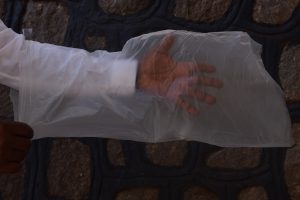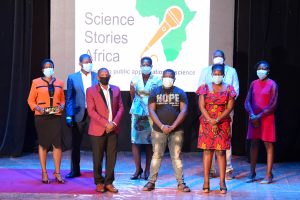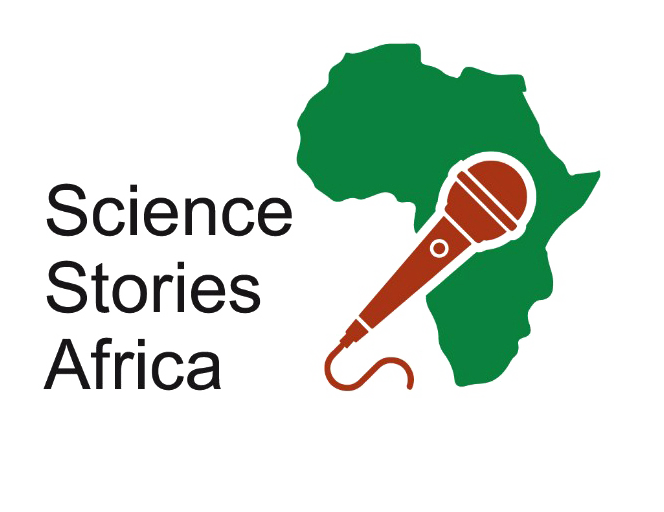Under the theme: “The Unbelievable” The second edition of Science Stories Africa (SSA) took science to the theater again. SSA uses the power of personal stories to communicate science to a lay audience. This year four scientists from both medical and agricultural backgrounds participated in the event, which was live online, due to the COVID19 precautions of limiting crowds..
These were:
- Dr. Misaki Wayengera – the inventor of the Ebola Diagnostic kit from Makerere University
- Dr. Kashub Tumwesigye and Dr. Paparu Pamela, both senior scientists at the National Agricultural Research Organisation (NARO) who invented the Biodegradable plastic bag and Root Rot resistant beans respectively.
- Dr. Leena Tripathi, IITA renowned biotechnologist who is using genome editing to develop bananas resistant to bacterial wilt and banana streak virus. The event was watched by over 750 people, giving knowledge and entertainment to science enthusiasts across the globe.
Inspired by diverse circumstances, all speakers had a unifying factor—the zeal to find a solution against all odds.
The speakers told captivating stories of their research journeys
Dr. Misaki Wayengera

Dr. Misaki Wayengera shares his story of an Ebola diagnostic tool which is fast and easy to use. “The paper strip requires minimum expertise, yields results within 2 – 3 minutes and costs less than 3 USD”, he revealed.
His story dates to 2000 when Uganda experienced the then biggest Ebola outbreak (https://pubmed.ncbi.nlm.nih.gov/12460399/) which affected over 570 people and caused loss of over 200 lives including medical doctors and nurses. “It would take us a week or two to get results because we had to ship the samples to the US, yet for Ebola, even a single day is too much, especially when the patient has progressed.” Africa’s reliance on the West to provide solutions forced Misaki to think of a home-grown solution that Africa could use to quickly diagnose illnesses. While at the University of Toronto – Medical and Related Sciences Discovery District during his fellowship in Bio-entrepreneurship program, Misaki started studying the genetic and protein makeup of the Ebola and Marburg pathogens with particular interest in the spike protein – (‘hairs’ on the body of the virus). The two viruses are related, so the results showed a lot of commonalities. This led to identification of possible targets for developing an easy test for deploying in equatorial Africa.
While Dr. Misaki knew very well that this endeavor was a sure path that would empower him to begin working on solutions that would help Africans, this did not come easy. From 2007-2012, his journey was marred with failed attempts to mobilize resources for critical experiments coupled with rejection and doubt.
“However, the continued failures did not wane our resolve – we did not give up. Eventually, someone found our idea worth funding”. The team secured their first grant of CA$ 100,000 with Grand Challenges Canada to develop a rapid diagnostic test for Ebola. The full story as told by Dr. Misaki during the storytelling event can be found here.
Dr. Pamela Paparu

“When did you last eat beans”? Dr. Pamela Paparu posed a question to the virtual audience as she started her story of the bean root rot disease. It is one of the most important bean diseases with the potential to cause up to 70% yield loss.
In 2008, Pamela secured a job with NARO as a ‘bean doctor’. While she was excited to have a chance to practice science, her excitement was short lived. She had no resources for three years. “Am I in the right place?” She wondered. During a field visit, she had seen farmers harvesting three bags of beans instead of the 10 they expected due to the Root Rot disease but no one was researching to find a solution to it. Thanks to funding from the Bill and Melinda Gates Foundation, DFID and British Biological Sciences Research Council, after a few years of research Pamela and her team managed to identify a variety which is resistant to bean root rot in 2019. Watch her full story here.
Dr. Leena Tripathi

Reality struck Dr. Leena Tripathi while on a bumpy ride to a farmer’s field when she saw wilted banana fields. “The scene was heart breaking,” she recalls. She later established that it was the BXW – banana bacterial wilt. The bacterial disease affects all types of bananas and presents with wilting leaves, and later kills the whole plant. The fruit ripens pre-maturely in addition to rotting from the inside. Thanks to genome editing, Dr. Tripathi was able to deactivate the gene susceptible to banana streak virus and later the one to Banana Bacterial Wilt (BXW). “This breakthrough has opened up a path for us to apply the technique to other diseases,” an excited Leena adds. Because there is no foreign gene inserted into the plant,edited bananas are like their non-edited counterparts. These efforts have led to establishment of Africa’s first gene editing platform for bananas. “Nothing beats determination, dedication and hard work”, Leena concluded as she told her story.
Dr. Steven Kashub

Childhood memories of his fathers’ cattle choking on polythene bags tormented Dr. Kashub to come up with a lasting solution to this menace. The ugly scene of Kiteezi landfill – a garbage collection center in Kampala further fueled his determination. His endeavor started in 2012 when the National Agricultural Research Organization presented him with an opportunity to develop a sustainable environmental product for the country. As a result, a biodegradable plastic bag from cassava peels, which disintegrates within three months, is with us as you read this. Watch Full story here

Biodegradable plastic bag
“We facilitate the telling of science stories by the innovators themselves because we want the world to know what African scientists are doing and support them as well as cheer them on,” notes Patricia Nanteza, the Founder of Science Stories Africa. SSA is a platform which amplifies scientists’ voices through story telling with the aim of improving public appreciation of science.
Naava Gray and Davies the Violinist provided entertainment for the evening. The event was funded by the Cornell Alliance for Science and Ian Gazard.

Speakers; Dr. Kashub, Dr. Paparu and Dr. Misaki joined by the Science Stories Africa team at National Theater, Kampala Uganda.


Recent Comments